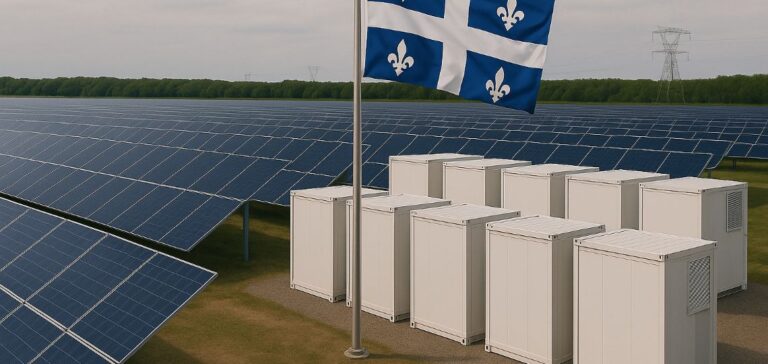The Quebec government has launched a call for projects aimed at increasing solar energy production in the province, according to Greg Kelley, Member of the National Assembly for Jacques-Cartier and official opposition energy critic, in a statement issued on May 6. This development comes more than a year after the Quebec Liberal Party introduced a solar catch-up plan.
In his statement, the representative noted that this decision aligns with the Liberal Party’s vision outlined in February 2024, and highlighted Quebec’s lag behind other provinces such as Ontario, which has made more significant investments in solar energy. The Liberal Party wants Quebec to become a leading solar energy producer in Canada, although the government has yet to provide further details about the proposed measures.
Proposals for self-generation and solar parks
According to the Liberal critic, incentives to support citizen-led self-generation as well as the development of solar parks could be among the solutions considered in the project call. No official government documents have yet detailed funding mechanisms, eligibility criteria, or installed capacity targets.
Greg Kelley also stated that while his party welcomes the move, it will continue to monitor the progress of the file to ensure its proper implementation. The Quebec Ministry of Energy has not yet released a timetable or regulatory framework related to the call.
Interprovincial comparisons and political pressure
Ontario, by comparison, had over 4,000 MW of installed solar capacity in 2023, according to the Independent Electricity System Operator, while Quebec’s capacity remains minimal. The province’s structural delay in this area has often been attributed to the abundance of hydroelectric resources available locally.
The call for projects could shift this balance, opening the door to new public and private investments in solar production. No budget estimates have yet been provided regarding the financial commitments involved.
“We obviously welcome the implementation of a Liberal project by the CAQ, but we will keep a close eye to ensure the file moves forward,” Greg Kelley concluded, without indicating whether public consultations are planned.






















